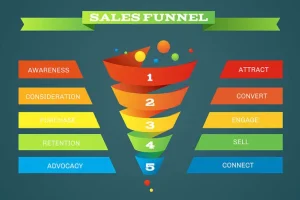
International business success requires more than an excellent product or service and effective sales team, however. Business leaders must overcome numerous hurdles such as language and cultural differences, different legal standards and differing customer expectations to find success internationally.
Businesses can prepare for international expansion by teaming up with an expert third-party. Here are five tips to assist your company as it ventures abroad:
1. Understand the Country’s Culture
International expansion can present businesses with unique operational complexities. From hiring local employees to setting up a foreign subsidiary (usually a separate legal entity that owns assets and pays taxes), businesses may struggle to adjust to each country’s culture, language and legal landscape.
Many companies take an “early mover” strategy when expanding internationally, entering a market as the first company. While this can provide competitive advantage, this often necessitates reinventing existing products or services for an unfamiliar target audience and can increase costs or shorten product lifecycles.
Due to these reasons, outsourcing these functions to a global PEO can often be beneficial and reduce or even remove the necessity for hiring and managing foreign staff.
2. Know Your Market
As your company looks to expand internationally, it’s crucial that you fully comprehend all of its complexities and benefits. International growth exposes your brand to new consumers while expanding brand recognition and revenue growth.
One effective strategy for expanding internationally is creating foreign subsidiaries – separate legal entities responsible for their own assets and taxes – but this takes extensive research and time.
FX hedging can be the most daunting aspect of expanding into global markets for financial professionals. This involves mitigating risk related to fluctuations in local currency fluctuations while navigating complicated payment issues – something professional services, such as an Employer of Record (EOR), can assist with. To stay compliant in global markets it may also help having an EOR on board who can ensure you remain compliant.
3. Develop a Marketing Strategy
An international expansion strategy helps companies reduce risks and open new revenue streams. Diversifying market presence reduces reliance on one country’s economic stability or political situation for survival of business operations.
An international marketing strategy must address the specific needs and requirements of each foreign market, including price localization, translation services and cultural adaptation. A localization expert can assist in understanding pricing for each market – saving money while increasing profits.
An effective globalization strategy also requires complying with local laws and regulations, such as registering for an import/export license, reviewing employment regulations or reviewing data protection rules. There are various resources to assist with this research such as US government Country Commercial Guides or DLA Piper Going Global publications which can assist your research.
4. Hire Local Staff
If your company plans on going global, it is crucial that your team has all of the skills and experience necessary for success. One way of doing this is working with an international PEO, which can assist with everything from hiring local employees to complying with local employment laws.
Hire local staff will also help your business establish an excellent employer brand in its new market and reduce costs and risk associated with noncompliance penalties.
Building an international business can be a fantastic way to expand your offerings, reach new consumers and establish a global reputation. However, it’s essential that the right decisions are made from the beginning; otherwise your organization could face serious complications down the line.
5. Make the Right Decisions
Once your business has established itself in a foreign market, the next phase of international growth should be carefully considered. Many businesses make the mistake of thinking they can simply apply their current model directly in another market – this can be dangerously misleading.
Global expansion provides many tangible advantages to any organization, from building brand recognition and revenue streams, to hiring global talent and diversifying revenue sources away from solely domestic markets.
Successful international expansion requires careful thought, consideration and an unwavering dedication across all departments of your company. A clear path with metric workflows and regular reviews should be established as part of this process.







